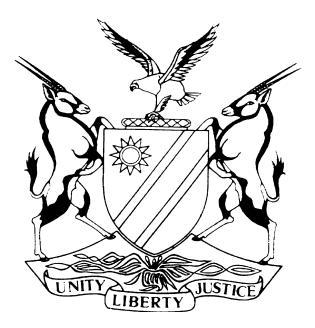3
R

IN THE HIGH COURT OF NAMIBIA, MAIN DIVISION, WINDHOEK
REVIEW JUDGMENT
PRACTICE DIRECTION 61
Case Title: The State v Pinehas Iipinge | CR 39/2024 | |
High Court MD Review No: 687/2024 | Division of Court: High Court, Main Division | |
Coram: Shivute J et Christiaan J | Delivered: 17 May 2024 | |
Neutral citation: S v Iipinge (CR 39/2024) [2024] NAHCMD 234 (17 May 2024) | ||
The order:
(b) It is ordered that the accused be released from custody forthwith, unless lawfully detained on another matter. | ||
Reasons for order: | ||
CHRISTIAAN J (SHIVUTE J concurring) [1] The accused in this matter pleaded not guilty to a charge of robbery. However, he was convicted after he purportedly made admissions in terms of s 220 of the Criminal Procedure Act 51 of 1977, (the CPA). He was sentenced to 36 months’ imprisonment. [2] Having received the matter on automatic review the conviction is not in order, based on the reasons advanced hereunder, and cannot be confirmed. The review court will not address a query to the presiding magistrate as it will cause prejudice to the accused if there is a delay in time. [3] The following was not clear from the record of proceedings:
[4] It is evident from the record that the accused was not informed by the court a quo of the effect of s 220 before he made the admissions. [5] The proper approach to record formal admissions from an unrepresented accused is that, immediately when it became apparent that he wished to make formal admissions, the court a quo was supposed to explain to the accused that the effect of making a formal admission is to relieve the State of the burden of proving the admitted facts by evidence, and that the accused is not compelled to assist the prosecution in proving its case.1
[6] In the present matter, the accused pleaded not guilty where after, the proceedings were postponed. With the commencement of proceedings on the next date, the prosecutor informed the court that the matter is on the roll for trial but that the accused wished to make ‘formal admissions’. The magistrate then proceeded to question the accused similar to the provisions of s 112(1)(b) of the CPA. The court a quo was not supposed to question the accused and extract answers from him. During the process of taking formal admissions, the court is only allowed to ask questions for the purpose of clarifications if the accused said something that is ambiguous. [7] Since the accused was not warned when he gave the so called admissions and the admissions were extracted from him through questioning by the court a quo, he was not properly armed with the knowledge of the consequences of giving formal admissions. He did not make an informed decision to give such formal admissions nor can it be concluded that he volunteered to give some of those admissions therefore, the conviction cannot be allowed to stand.
[8] In the result, the following order is made. (a) The conviction and sentence are set aside. (b) It is ordered that the accused be released from custody forthwith, unless lawfully detained on another matter. | ||
P CHRISTIAAN JUDGE | N N SHIVUTE JUDGE | |
1 S v Mavundla 1976 (4) SA 713 (N.P.D).